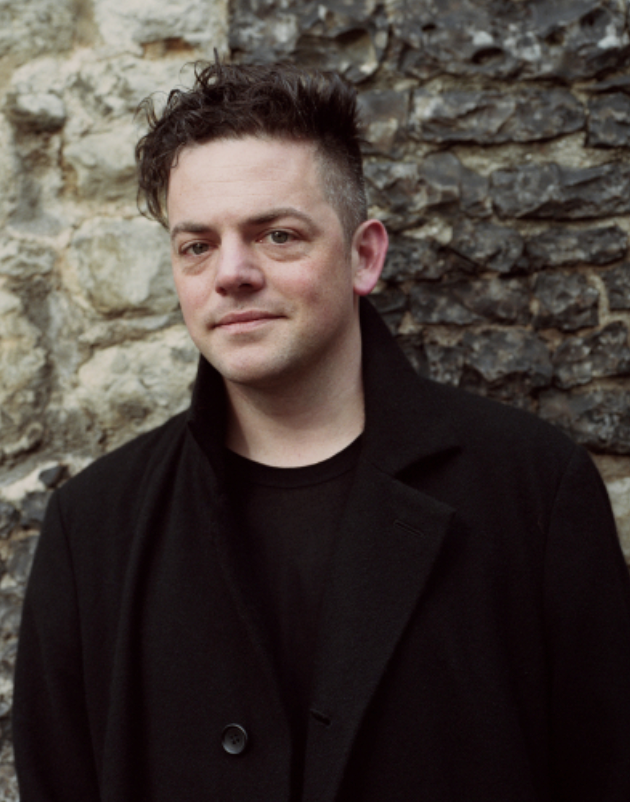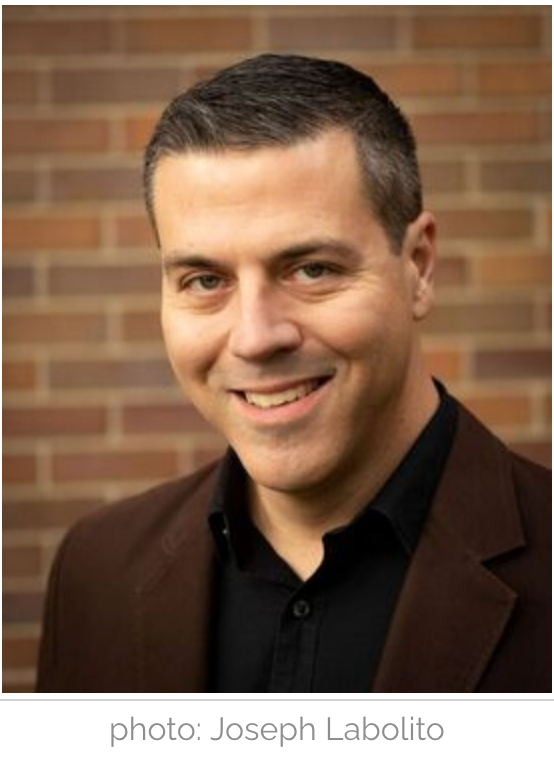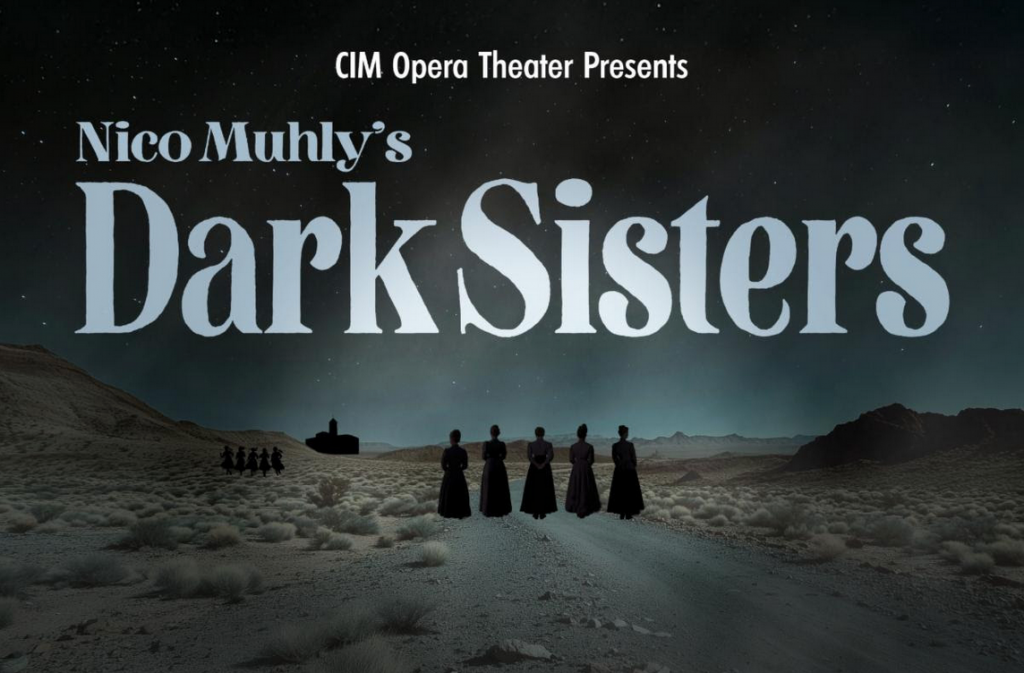by Mike Telin
Due to unforeseen circumstances, the CIM Opera Theater’s performances of Nico Muhly’s Dark Sisters on February 1 and 2, 2025, at the Cleveland Museum of Art have been canceled. Refunds are being issued to all ticket holders.
“As an artistic and stage director who enjoys telling stories, this is a very compelling work and something that our students can sink their dramatic teeth into. It’s also a piece that audiences can get lost in, and ask questions about as the story goes along.”
That’s how CIM Opera Theater’s interim artistic director JJ Hudson characterized Nico Muhly’s Dark Sisters in a telephone interview. In his synopsis, the composer notes that the 2009 work — his first opera — follows one woman’s dangerous attempt to escape her life as a member of the FLDS Church (Fundamentalist Latter Day Saints), a sect that split from mainstream Mormonism in the early 20th Century, largely because of the LDS Church’s renunciation of polygamy.

The Opera’s narrative is inspired by the media attention surrounding the 2008 government raid at the YFZ Ranch in Eldorado, Texas, along with stories of the over 80 wives of Joseph Smith and Brigham Young. During a Zoom conversation, the composer said he and librettist Stephen Karam were surprised to discover how willing people were to talk. They also discovered the long tradition of diary-keeping by the FLDS women living in polygamy, dating back to Emma Smith, the first wife of Joseph Smith.
Muhly noted that musically speaking, Dark Sisters is inspired by the red-earthed, desert-like landscape. “Google Short-Creek, Arizona,” he tells me. I do — the images are stunning.

Hudson said that while doing his research this past summer, he found himself going down a very deep rabbit hole. “There are so many memoirs that have been published about women — and men too — who have escaped the FLDS, and it’s a very compelling reading.” As part of the libretto reading this past fall, Hudson prepared a 45-minute presentation that drew on that research.
“I was very forthright with the students that I am not a scholar of Mormonism, nor of fundamentalist Mormonism. I am a stage director who did the necessary research to be able to present an author’s work on this subject. So our students did receive a primer. And I’m very happy to say that many of them also found a rabbit hole in the material.”
Hudson added that one thing that is made clear to students, to the administration, and to the audience is that the FLDS is more than a hundred-year-old sect — it is NOT mainstream Mormonism. And Dark Sisters is NOT a show about mainstream Mormonism, but it is a story of spiritual awakening and escape.
“The story has the universal theme of someone awakening to themselves and asking spiritual questions. And recognizing that to reach their own full potential and for their own family’s safety, they need to escape — a theme that is found in many operas and dramas.”
Noting that the staging will be minimalist, Hudson added that one of the beauties of opera is that the aural landscape is often better than the visual.
“There’s a passage where the main character Eliza is out in the desert by herself looking up at the stars, and considers the expanse of the cosmos. Her awakening begins when she asks, ‘If God created all of this, why is my world so small?’ And as she is having that thought, the starlight is written so beautifully into the orchestra. You can feel the twinkling of the stars and the expanse of the cosmos, and for me, to literally project that onstage is almost redundant.”

“I’m excited about singing the role of Ruth — you can look at her in a lot of different ways, but she is kind of painted as this crazy woman. Then you find out what she has been through in her life. As an actress, it gives me the opportunity to really dive into her motivation and what it means to be a crazy woman.”
How familiar was Jacobs with the FLDS and the 2008 raid? “I was born in 1997, and while it wasn’t completely on my radar, I do remember it being on the news.”
Growing up in New Hampshire, Jacobs was familiar with Mormonism in her town, making it clear that it was not FLDS. “My dad grew up Mormon and I was kind of fixated on mainstream Mormonism in college. So it’s something that I’m interested in, but it wasn’t something I knew a lot about.”
The soprano said that they take time during rehearsals for discussion and reading books together. They even watched the Netflix documentary Keep Sweet: Pray and Obey.
“I remember when that came out, and I thought, wow, this is hard to wrap my mind around. It’s a completely different way of life. I don’t have that kind of big family, so it has been interesting to put myself in that space — what would it be like if everybody I knew was part of this religion, and leaving it would mean losing my entire family and everybody that I’m in communication with every day?”
What are the musical challenges in Muhly’s writing? “He’s taken the drama of the story and put it into this sonic landscape that oftentimes is very crunchy and very dissonant. There are many moments when we have to pull our pitches out of thin air, which is difficult. Then there are moments where the wives all come together and sing, ‘Keep Sweet, Pray, and Obey.’ That mantra is repeated so often that it’s second nature to them. Each time you hear that theme, it’s haunting. And it comes out of the landscape.”
Jacobs said that although there is a lot of drama in the sonic landscape, there are also many beautiful moments. “He’s even given us arias, which is rare in modern opera.”
Hudson said that it’s important for him to remember what it was like to be a student and to have the realization that opera is a living art. “We perform a lot of works that we’ve inherited, and they are wonderful works. But opera is still a creative, dynamic art form, and we have stories that are drawn on from today’s headlines that are addressing universal themes.”
Click here for a printable copy of this article
Published on ClevelandClassical.com January 28, 2025




